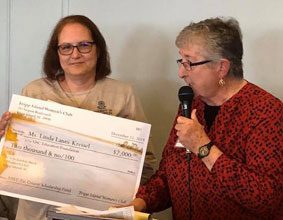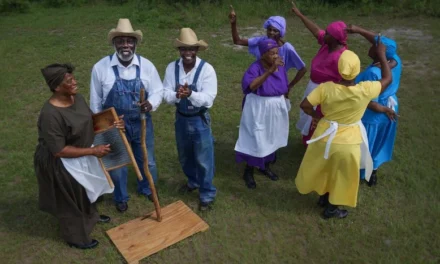![]() “Music gives a soul to the universe, wings to the mind, flight to the imagination, and life to everything.” – Plato
“Music gives a soul to the universe, wings to the mind, flight to the imagination, and life to everything.” – Plato
“I’m like, ‘There’s no way in the world you can play these notes.’ He was hitting Eric Clapton, he was hitting me, Stevie, Jimi Hendrix. I couldn’t even play a radio when I was seven or eight years old! Players like him come along once in a lifetime.” – Buddy Guy, legendary bluesman, on guitar prodigy Quinn Sullivan
Glow in the dark phenomena known as child prodigies have been around for a long time, probably from the dawn of man. And yet prodigies remain a challenge to distill, something of a head scratcher. The typical definition of a child prodigy insists that we behold a child with expert adult skills and proficiency in some specific area. A whiz kid or wunderkind. But a kid dazzling us before the age of ten.
A second camp is more generous about that ten years old business. For example, “A prodigy has to be a child, or at least younger than 18 years, who is performing at the level of a highly trained adult in a very demanding field of endeavor.”
I’m in that second camp. Imposing a ten-year-old cutoff is arbitrary and rigid. I therefore throw Beethoven (watch your fingers!) into the bigger bucket. Some children astonished observers with their talents at an extremely young age, in some cases as early as three. Most of us have heard of some of the most famous, such as Curie, Mozart , Chopin, and Prokofiev. And many others names may ring a bell, if distant: Leslie Howard, Victor Borge, Emily Bear, Andre Previn for example, all pianists. Maria Agnesi, eighteenth century mathematician.
Most child prodigies super-excel in music, math, chess, more music and more math. There have been, however, extremely rare children who excelled in physics (e.g., Enrico Fermi of the famed Manhattan Project in WWII), philosophy (yeah, that sounds impossible to me, too), poetry and even film directing. What do they all share in common? Widespread public acclimation and irrefutable, extraordinary talent. (Prodigies do not typically display savant syndrome, which accompanies mental disablers such as autism.)
Some of their stories seem to defy reality. Vincenzo Bellini could sing an aria at 18 months and offered up his first composition at six. Mozart wrote Symphony No. 1 in Eat age eight. This was years after his emergence as a prodigal performance artist.Harpsichord, organ, clavichord and violin were among his favored instruments.
Then we had the incomparably glowing actress, singer and dancer, Shirley Temple. A toddler when the Depression descended like an anvil, her box office power was demonstrated in such films as “The Little Colonel” and “Curly Top.” She rode the engine of Hollywood’s box office train from 1935-1938. Her dance routines with the great Bill “Bojangles” Robinson, fifty years her senior, were film gold. If these two charmers didn’t melt your heart it was time to see a cardiologist. Economically battered audiences couldn’t get enough of little Shirley.
Miss Shirley was so stunningly talented that at one point during the height of her stardom, the Vatican sent a ‘spy’ from Rome, Father Silvio Massante, to Hollywood to snoop into whether or not Temple was really a 30-year old “dwarf.” A proportionate one, of course. Wouldn’t it be interesting to go over his travel expenses and final summary… ‘Now then, Signora Temple, iffa we went to de bar for a dreenk, what woood you order? Do you have the ID as you Americans say?’
Child prodigies do not follow the same or even roughly similar trajectories through later life. Some go on to far greater fame while others shun the public eye and publicity pressure. Others experience eventual losses of their prior dynamism. As Shirley once said, “Any star can be devoured by human adoration, sparkle by sparkle.”The list of flame-outs, long and tragic, includes Aaron Swartz, for example. At 14, Swartz developed the software that allows you to get online subscriptions. He was sentenced to 35 years after being convicted of massive hacking and hanged himself in 2013. He was 26.
I discussed such matters recently with a former child prodigy on piano, Steve Heck. Steve was discovered as supremely gifted at age six when he rapidly internalized and played back songs that he heard his older brother playing. Steve’s parents were skeptical if not incredulous at first, but schemed to verify his brilliance and were rewarded by striking gold. He was the real deal. Mr. Heck teaches piano today at prestigious Berklee College of Music in Boston. He is articulate and pleasant in describing the trade-offs he faced when weighing stardom versus a life without the stress that may accompany such prodigies turned adult stars as Stevie Wonder.
Prodigies are not only gifted unto themselves, they are a gift to all of us. While people may succumb to resentment or jealousy in everyday life, such feelings toward a prodigy, a young star, a gorgeous freak of nature, are rare. It’s hard to picture an otherwise fairly normal adult streaking toward a mental health therapist or happy hour because they became toxically jealous over an eight-year-old girl who can perform the work of historical composers perfectly or a six-year-old blind boy who plays piano and started at 11 months.
Or . . . an eight-year-old boy on electric guitar who can play straight up blues alongside masters like Buddy Guy: “I had to unplug his amplifier to make sure it was him.” The boy isNew Bedford, MA’s Quinn Sullivan, who made his professional debut on the Ellen Degeneres Show when he was six. Listening to Quinn, one may bathe in a wellspring of his emotional expression and unadulterated joy. When he and Mr. Guy perform on stage together, 60 years apart, the two are bound by the blues. Quinn became so proficient that he sounded like an advanced adult while still in high school. His intensity and sheer joy radiate like a sunflower. We note, incidentally, that his parents never pushed him.
I can’t close without saluting the aurora of young talent around the world. Recent composite videos showcase young guitar rockers who are all young ladies, one 11 year old Indonesian right up against France’s great Laura Cox, the UK’s Sophie Lloyd and Italy’s Sylvya Boschiero, all in their twenties.
Maybe one day these guitar phenoms will play at the level of the stunning rock and blues guitarist with a power plant voice. From Austin, TX, at barely five feet tall, she’s an atomic Derringer: Carolyn Wonderland, 46. Watching her play barely out of her teens until now, a rural highway comes to mind, one straight and true and heading relentlessly forward, day and night.
I passed a girl recently, about six, holding her mother’s hand as she skipped down the sidewalk. She wore blue leggings with white stars. Another prodigy in the works, perhaps in dance? Who knows, but I imagine her reaching the heights someday. And her dreams.
Starlight for everyone.







